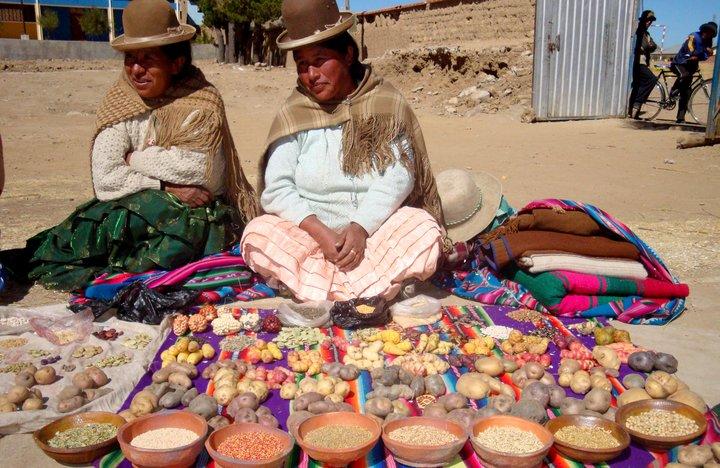Call for contributions: Access and benefit sharing - can it work for family farmers and agroecology?

In a new publication, ILEIA and Bioversity International will explore if and how access and benefit sharing related to plant genetic resources can work for family farmers and agroecology. Contributions are most welcome. Deadline: 15 August 2015.
In a new publication, ILEIA will explore if and how access and benefit sharing related to plant genetic resources can work for family farmers and agroecology. The publication will be primarily be based on experiences of family farmers from around the world, and aims to inform farmers and practitioners, researchers, civil society, and policymakers. Your contributions are most welcome. Deadline: 15 August 2015.
Worldwide, local practices in biodiversity management, seed saving, crop improvement and natural resource management are under stress. Disintegration of these practices goes hand in hand with the loss of traditional and indigenous knowledge related to seeds, crops, trees, animals, land and water. In various countries, new legislation and policies are threatening farmers’ access to and autonomy over their genetic resources. At the same time, effective adaptation to climate change requires experimenting with, and having access to, a broad diversity of crops and crop varieties.
Access and benefit-sharing agreements (ABS) define how benefits arising from the use of genetic resources should be shared in a fair and equitable manner between different stakeholders, including farmers, plant breeders, research organizations, seed producers and genebank managers. They can be formal or informal and applied at local, national or global levels. The International Treaty on Plant Genetic Resources for Food and Agriculture (ITPGRFA, or the ‘seed treaty’) and the Nagoya Protocol on Access and Benefit Sharing under the Convention on Biological Diversity are two of the most important international agreements that regulate access to and benefit sharing of genetic resources. The implementation of these frameworks, however, represents challenges.
This publication will explore if and how access and benefit-sharing agreements can advance family farmers’ seed systems, their agroecological practices and the management of biodiversity on farm and landscape scales. It will be published at the end of 2015 by ILEIA in collaboration with Bioversity International.
We invite you to send us your experiences - in areas such as (in situ and ex situ) agricultural diversity conservation and use, promotion of farmers’ and indigenous peoples’ access to genetic resources and knowledge, use of community protocols for access and benefit sharing, management of biocultural landscapes, biopiracy prevention, promotion and recognition of farmers and indigenous peoples in decision-making on natural resource management, participatory plant breeding, climate change adaptation, farmers' experiences in taking advantage of the ITPGRFA, effective inclusion of access and benefit sharing in national policy.
We welcome contributions that address one or more of the following questions:
- Can you describe a telling example where a formal or informal access and benefit-sharing agreements has successfully strengthened farmers’ seed systems and farmer seed autonomy? What works, what doesn’t work, and why? What can others learn from these experiences? Is this example part of a larger initiative?
- Are there cases where formal or informal access and benefit-sharing agreements are tied to political and financial mechanisms that support on-farm conservation and farmers’ seed systems?
- How does climate change affect the relevance of access and benefit-sharing policies and laws for family farmers and agroecology?
- Agroecology is based on farmer knowledge and practices, supported by formal science. Can ABS play a supportive role in this process of knowledge co-creation?
- What are your experiences with the principles of prior informed consent and mutually agreed terms in practice?
We welcome experiences and perspectives from farmers and their organizations, field workers, plant breeders, international, national and community genebank managers, researchers, NGOs and policymakers.
Please send your contribution before 15 August 2015 to [email protected]
Photo: Diversity fair in Ecuador. Credit: Bioversity International/S.Padulosi
